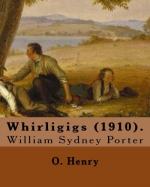
|
| Name: _________________________ | Period: ___________________ |
This test consists of 15 multiple choice questions and 5 short answer questions.
Multiple Choice Questions
1. Who is Miss Van Meeker Constantia Coulson?
(a) Mr. Coulson's daughter.
(b) Mr. Coulson's aunt.
(c) Mr. Coulson's granddaughter.
(d) Mr. Coulson's sister.
2. According to the narrator, what does May want humans to remember?
(a) That they are not immortal.
(b) That they should be grateful for the coming summer.
(c) That they are also animals.
(d) That they should be kind to one another.
3. On page 334, the narrator refers to the "panoply" of Miss Coulson's "unthrilled bosom." What is the meaning of "panoply" in this context?
(a) An impressive array.
(b) A suit of armor.
(c) Unemotional wisdom.
(d) Ceremonial clothing.
4. The story opens with the word "prithee" (332). What does this word mean in this context?
(a) Listen carefully.
(b) Keep this information secret.
(c) Please, I am begging you.
(d) I disapprove of this.
5. When Mr. Coulson complains about the cold, what is his servant's response?
(a) He laughs.
(b) He calls for Mrs. Widdup.
(c) He shuts the windows.
(d) He offers to investigate the problem.
6. How many years apart are Miss Coulson's and Mrs. Widdup's ages?
(a) 10.
(b) 5.
(c) 15.
(d) They are the same age.
7. Whom does the narrator refer to as "the venerable and scarcely suspecting victim of May" (334)?
(a) Mr. Coulson.
(b) Mrs. Widdup.
(c) Miss Coulson.
(d) The iceman.
8. What kind of clam is a "chowder-doomed clam" (332)?
(a) One that is destined to be eaten in soup.
(b) One that is personified as feeling worried.
(c) One that is poisonous to humans.
(d) One that is confused by its surroundings.
9. How does the narrator suggest the reader should respond to the poet who praises the month of May?
(a) With a poem that condemns May.
(b) With a punch in the eye.
(c) With laughter.
(d) With more accurate scientific information.
10. Which of the following literary techniques is used in the title "The Marry Month of May"?
(a) Paronomasia.
(b) Anaphora.
(c) Paraprosdokian.
(d) Synecdoche.
11. When Mr. Coulson continues quoting the poem and mentions "a livelier iris," what does Mrs. Widdup think he is talking about? (333)
(a) Eyes.
(b) A bird.
(c) Flowers.
(d) The Irish.
12. When Mr. Coulson is irritated, he complains that no one in the house does what?
(a) Listens to him when he speaks.
(b) Responds when he rings for a servant.
(c) Attempts to entertain him.
(d) Cares if he lives or dies.
13. Which neighborhood does Mr. Coulson live in?
(a) Gramercy Park.
(b) Lincoln Square.
(c) Carnegie Hill.
(d) Chelsea.
14. After the iceman tells Miss Coulson, "It'll be a pleasure to fix things up for you any way you please," the narrator comments "Alas for May" (334). What is implied by this comment?
(a) The iceman is flirting a little bit with Miss Coulson.
(b) The iceman is mocking Miss Coulson for making such a strange request.
(c) Miss Coulson would not have to scheme against Mr. Coulson if it were not for the season.
(d) Miss Coulson has deliberately given the iceman the wrong impression about her intentions.
15. On the final morning of the story, what causes Mr. Coulson's mood to change?
(a) He is in much less pain than usual.
(b) It is warm again and the windows are open.
(c) Miss Coulson has told him that he is behaving badly.
(d) Mrs. Widdup has threatened to quit.
Short Answer Questions
1. What are the details about the iceman's sleeves and hat intended to convey?
2. Why does Mrs. Widdup go into Mr. Coulson's room in the afternoon on the second day of the story?
3. How does Miss Coulson spend the afternoon after her conversation with her father about the cold?
4. There are "jonquils" near where Mr. Coulson is sitting. What are jonquils?
5. When "May holds up a chiding finger," (332), what is May's intention?
|
This section contains 697 words (approx. 3 pages at 300 words per page) |

|




